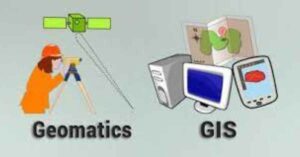
Interjection and Types of Interjection
Interjection in English
Interjection in English grammar is a word which shows sudden feeling, emotions that happens unintentionally. Interjection in English examples are like Wow, Hurrah, Alas, Hoho, and much more words that we use in our daily life.
Interjection is another part of speech which is important in initial tests of Army, Navy and PAF. If you are going to apply for joining Pak Navy, Pak Navy or Pakistan Air Force then you must learn this part of speech.
Interjection in English Language is a short word or a phrase that shows some feelings or a part of speech used to convey or express sudden feelings.
Find here detail about interjection and its types in detail. Its use is mostly used in all tests of English paper whether it is commissioned tests, Soldier test, Airman Tests, or Sailor Tests.
If you have applied in Pak Army and want to clear the initial papers of English, and worried about it then Looking for an interjection definition?. We can define as it is a word, phrase, or sentence that expresses emotion, meaning, or feeling.
If you want to learn about more then Subscribe our YouTube channel of Shaheen Forces Academy, or Forces Intelligence. You can practice online HERE. For more notes of the subjects CLICK HERE. Install our mobile application of “Shaheen Forces“. Follow us at our Blog page Here.
Do not forget to click on the following links to learn more about Parts of Speech.
1. | Nouns | 5. | Preposition | ||
2. | Pronouns | 6. | Conjunction | ||
3. | Verb | 7. | Adjectives | ||
4. | Adverb | 8. | Interjection |
INTERJECTION
In spoken language, it is the word we instantly use to show our reaction to something which influences our emotion. This is the initial reaction and sometimes do not even make sense.
However, for formal speech or writing, using it is not appropriate. It is a word which expresses some sudden feelings, emotions and sentiments of happiness, sorrow, approval or the applause, warning and attention.
TYPES
- Joy/Happiness Hurrah, Aha, Waoo
- Sorrow/Sadness Alas, Oh, Aah
- Appreciation/Applause Done, Good Bravo, Well
- Warming/Attention Hellow, Hey, Hush, Thus
- Surprise Ah! What! Ha!
An interjection is a kind of exclamation inserted into regular speech. Actually, it is a brief and abrupt pause in speech for expressing emotions.
They are unique and have some interesting features:
- Interjections don’t have a grammatical function in sentence construction.
- They usually cannot be modified or inflected.
- They do not have to have a relation to the other parts of the sentence.
- They are highly context-sensitive.
In spoken language, interjections are the words we instantly use to show our reaction to something which influences our emotion. They are the initial reaction and sometimes do not even make sense. However, for formal speech or writing, using interjections is not appropriate.
Types of Interjections
- Primary Inter
- Secondary Inter
- Mild Inter
- Strong Inter
- Volitive Inter
- Emotive Inter
- Cognitive Inter
There are basically two types of it and they are –
1. Primary Interjection
The words that are exclusively interjections and cannot be classified as any other Parts of Speech are called Primary Interjections.
Examples:
| List of Primary Interjections | |||
| Phew | Wow | Oh | Blah |
| Huh | Aw | God | Oops |
| Hurray | Yuck | Gee | Ugh |
| Ouch | Alas | Geez | Meh |
- Oops, My bad.
- Wow! You had time to join us.
- Alas! I couldn’t be there on time.
2. Secondary Interjection
The Nouns, Adjectives, and other Parts of Speech that act as interjections on occasions are called Secondary Interjectons.
Examples:
- Indeed, I was waiting for your premonitions.
- Goodness! How did you go through all these books in a day?
- Holy cow! You’re the last person I expected.
Based on the severity of the expressions, Interjections are categorized into two types –
1. Mild Interjection
The relatively mild expression of feelings and emotions is usually called Mild Interjectons. These types are typically separated from the rest of the sentence by commas.
Examples:
- Oh, I was looking for you.
- Well, it wasn’t very easy.
- Hmm, I’m doing well.
2. Strong Interjection
The strong outbursts of expression are determined as Strong Interjections. These types are typically separated from the rest of the sentence by exclamation marks.
Examples:
- Yay! I finally passed.
- Bingo! Found it.
- Ouch! That hurt.
Based on the kind of emotions conveyed, Interjections are divided into three categories –
1. Volitive Interjection
Commands, requests, and wishes are usually expressed with Volitive Interjections. In the speech, “I want” expressions are replaced with Volitive Interjections.
“Enough” expresses the wish to stop listening to someone and maybe put forward a contesting statement. “Shoo” tends to express the speaker’s wish to drive someone away.
Examples:
- Shh (I want you to be quiet) – Shh! We have to keep it quiet.
- Ahem (I request your attention) – Ahem! I was looking at another problem.
- Psst (I want to attract attention in secrecy) – Psst! I’ve started working out.
2. Emotive Interjection
The words to express sudden spur of emotions like surprise, delight, sorrow, disgust and fear are Emotive Interjections. These types usually replace the “I feel” expressions in speech.
“Eww” means to convey – “I feel disgusted” and “Phew” means to express – “I feel relieved”.
Examples:
- Ugh (I feel disgusted) – Ugh! What is that filthy smell?
- Ouch (I feel hurt) – Ouch! These ants sting.
- Yippee (I feel elated) – Yippee! We ended the year victorious.
3. Cognitive Interjection
Words that are born off cognition and used as exclamations are called Cognitive Interjctions. These types are used to convey the feelings and emotions that people come across and understand through experience.
Examples:
- Well, I’ll try harder.
- Bravo! What a performance!
- Gosh, you’re so fast.
Interjections mainly have four roles:
Rule 1: Interjctions express a sudden mood, emotions, and feeling with emphasis. There are also many taboo words that are usually used in everyday conversation but not in formal aspects. These words fall into the category of interjections.
Example:
- Wow! That’s an amazing scene.
- Aw, I did not want him to come.
- What? You never told me that!
Rule 2: Some interjctions interrupt a conversation or a thought or hold someone’s attention for a moment. These are just sounds, not words because these sounds do not make any sense.
Example:
- Your, um, shirt has a stain on the back.
- I want to, uh, ask you out on a date.
Rule 3: Some interjctions express only yes or no.
Example:
- Yes! I will most definitely do it.
- Nah, we are not going.
Rule 4: Some are used to get someone’s attention.
Example:
- Yo, Alex! Get in the car!
- Hey! Will you give me that ball?
- Yoo-hoo! Is there anyone?
Examples
In the following examples, the interjections are shaded.
- Hey! Get off that floor!
- Oh, that is a surprise.
- Good! Now we can move on.
- Jeepers, that was close.
Yes and No
Expressions such as “yes,” “no,” “indeed,” and “well” are often used as interjections. For example:
- Indeed, this is not the first time the stand has collapsed.
- Yes, I do intend to cover the bet.
Phew!
Some interjections are sounds. For example:
- Phew! I am not trying that again.
- Humph! I knew that last week.
- Mmmm, my compliments to the chef.
Multi-word
Some interjections are more than one word. For example:
- Oh, really? I doubt that.
- Holy moly! She won!
They’re not always at the start of a sentence. For example:
- It is cold, indeed.
Real-Life Examples
- I’m sure I don’t know half the people who come to my house. Indeed, for all I hear, I shouldn’t like to. (Poet and playwright Oscar Wilde)
- Yes, it’s absolutely true that anything worth doing is worth doing poorly until you can do it well. (Author Zig Ziglar)
- Well, it’s 1 a.m. Better go home and spend some quality time with the kids. (Homer Simpson)
- Ah! Don’t say you agree with me. When people agree with me, I always feel that I must be wrong. (Playwright Oscar Wilde)
- It’s smoke, and it’s in flames now; and the frame is crashing to the ground, not quite to the mooring mast. Oh, the humanity! (Radio journalist Herbert Morrison reporting on the 1937 Hindenburg disaster)
What punctuation follows it?
Recognizing it, it will help you to choose the punctuation that follows it. If it is not a question (and most aren’t), you have a choice. You can use a comma, a period (full stop) or an exclamation mark. Commas and periods are used for mild interjections, while exclamation marks are used for stronger expressions of emotion. Often, an interjction followed by an exclamation mark will be followed by an exclamatory sentence (i.e., one with an exclamation mark).
- Jeepers! You scared the life out of me!
- Crikey! Do you think before you speak?
The choice between a comma and a period depends on your desired flow of text. In other words, choose what looks good to you. If it is a question, you must use a question mark.
- I always cheer up immensely if an attack is particularly wounding because I think, well, if they attack one personally, it means they have not a single political argument left. (Prime Minister Margaret Thatcher)
(Question 2) Can you use it in business writing?
As a general rule, you should avoid using it in business writing, but, used very infrequently, they can be impactful and insert some pep into a document. Too much interjection-invoked pep, however, could make you look a little scatty.
For more notes Click Here
See more:
| 1. | Join Pak Army as an Army Officer | Click Here |
| 2. | Join Pakistan Navy as a Navy Officer | Click Here |
| 3. | Join PAF as a PAF Officer | Click Here |





